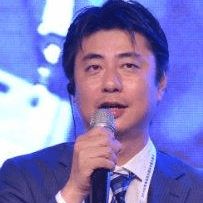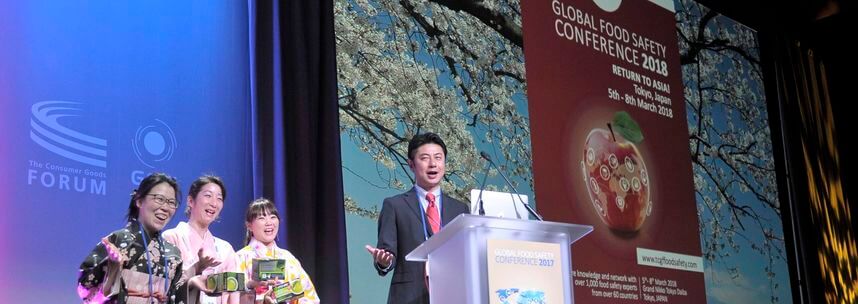2018 marks the first year that Japan will host GFSI’s Global Food Safety Conference, and only the second year that the conference will take place in Asia. Of the conference’s 1,000 delegates from over 50 countries, many will be visiting Japan for the first time.
I encourage these first-time visitors to sample Tokyo’s diverse culinary culture, from its fish markets and sushi restaurants to its bakeries and convenience stores.
You’ll find that nearly every shop in the city demonstrates the patient attention to detail that defines Japan’s attitude towards food. This detail-oriented philosophy makes Japan particularly amenable to the GFSI mission.
As Japan’s role in the global marketplace continues to grow, Japanese companies recognise the imperative to adhere to global standards in food safety. GFSI’s 2018 conference is therefore poised to create sustainable change in the food safety culture of Japan, Asia, and the rest of the world.
SMEs and the Global Markets Programme
Any effort to improve food safety in Asia, especially Japan, must place a special focus on SMEs.
While SMEs (small and medium-sized enterprises) outnumber large businesses in every country, Japan is a special case; since the 1950s, the Japanese government has emphasised policies that protect SMEs’ share of the economy. Generations-old family businesses coexist with vertically-integrated multinational corporations, and Japanese consumers are equally comfortable shopping at either end of the spectrum.
At its best, the relationship between SMEs and large businesses is one of cooperation. For example, AEON Co., Ltd. — the largest retailer in Asia — partners with roughly one thousand SMEs to supply our private brands. These suppliers all use GFSI’s Global Markets Programme to audit their activities and develop their food safety capabilities.
The CEO of AEON Co., Ltd., Motoya Okada, will share his experiences with the Global Markets Programme at the Retailer CEO panel, one of the most anticipated talks of GFSI 2018.
Adapting Certification Programmes to the Local Market
Retailers, distributors, and their suppliers are leading the pack on food safety, but the current trend towards compliance goes far beyond this sector of the industry.
In recognition of Japanese companies’ growing interest in global standards, global Certification Programme Owners (CPOs) such as IFS and GlobalG.A.P. are adapting their programmes to account for the specificities of the Japanese food industry.
Japan also has established its own certification programmes, including JFSM and JGAP.
In order to expand the GFSI philosophy elsewhere in Asia, we should encourage more locally-based CPOs. These homegrown organisations understand the intricacies of their respective countries’ food cultures and are well-equipped to create suitably adapted certification programmes.
GFSI 2018 is the ideal opportunity for local and global food safety stakeholders to build the lines of communication that will lead to more consistent standards in Asia and beyond.
Public-Private Collaboration
While national governments do not always place a priority on food safety, the food industry in Japan is fortunate to have sustained public-sector support.
Both the private and public sectors recognise that food safety is not only good for people but also good for business.
Historically, Japanese companies have a high rate of compliance with mandates, which makes the current government interest in food safety especially encouraging. We hope that GFSI 2018 and its numerous public-sector delegates will help this trend spread elsewhere in Asia.
GFSI 2018 attendees will hear more about the public sector’s role in food safety from Ken Saito, Japan’s Minister of Agriculture, Forestry and Fisheries, and Daichi Suzuki, the Chief of the Sports Agency. Suzuki is also a gold-medal winning athlete — he swam for Japan at Seoul 1988 — which gives him a special perspective on one of the most salient topics of the GFSI conference: food safety at the Tokyo summer games in 2020.
Asia on the Global Stage
The upcoming sporting events in Tokyo have catalysed Japan’s burgeoning food safety movement into action.
London set a precedent in 2012 by holding all of their suppliers to the GlobalG.A.P., among other certifications, and Tokyo suppliers are following suit. Procurement practices for the events will follow GFSI-recognised certification programmes for food safety and the UN SDG (Sustainable Development Goals) guidelines for animal welfare and sustainability. After the Tokyo sporting event draws to a close, Asia will remain on the global stage; the 2022 winter sporting events will be held in Beijing.
Stakeholders in China and neighbouring countries are already working to globalise their standards in anticipation of heightened attention.
The GFSI conference is the industry’s annual rendezvous and a platform for stakeholders to connect. The conference and the upcoming sporting events both have the potential to change global attitudes towards Asia, as well as attitudes among the people and governments of the host countries. As a proud citizen of GFSI’s 2018 host country, I look forward to welcoming attendees and encourage you to seize this opportunity to “go global”.

Katsuki Kishi
General Manager, Quality Management Department, ÆON Retail Co., Ltd., Japan,
Member of the GFSI Board of Directors and Chair of the GFSI Japan Local Group

